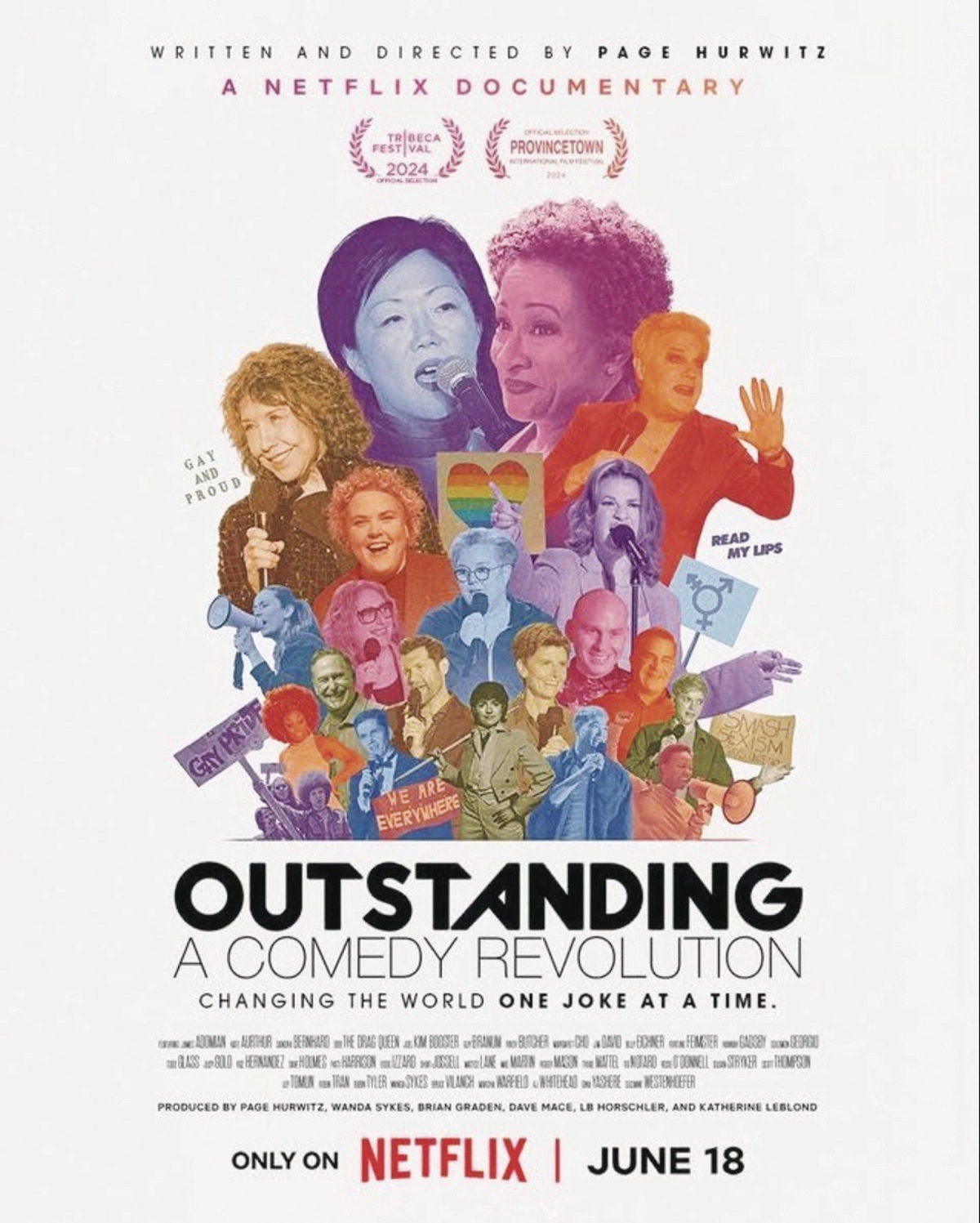As the Fourth of July has passed, we are entering a lull period that could be the dog days. Oppressive heatwaves have certainly given that impression. But that doesn’t mean that we are without our reasons to party. Seeing as I left out Pride this year, let me declare this a second Pride month with some reasons to celebrate and educate all on a bit of secret history. No fear that this be a dry, doctrinaire thesis; we are about fun after all. And what doesn’t say entertainment more than humor.
Released on Netflix a few weeks back, Outstanding was a documentary about LGBT comedians throughout the years. With conversations with the likes of Sandra Bernhard, Judy Gold, and Lily Tomlin; we learn through their experiences what it was like to come up through the clubs and venues while still remaining hidden. These first-hand accounts are invaluable for all viewers of stand up, regardless of whom is talking.

Interspersed between the interviews, we are treated to multiple performances during last year’s Netflix is a Joke Festival in Los Angeles. With great humility and light-hearted attitudes, each performer shines through. In one interview with my personal fav Eddie Izzard, he speaks of comedy having the power to disarm anyone. Wearing his signature makeup and feminine clothing, he has a charming way about him as do all of the guests.
It was fun to see local comic Matteo Lane, although I wish we could have seen him perform. Sandra Bernhard discusses her Letterman appearances, the most outrageous being with Madonna. Rosie O’Donnell brings up her history with Ellen DeGeneres, followed by clips of Rosie’s talk show. Some greats like Charles Nelson Reilly and Paul Lynde are mentioned but only in passing. What a fun way to laugh and learn.
PBS aired a three-part history called Disco: Soundtrack of a Revolution (now on PBS Passport) which took a more comprehensive approach behind a musical genre both adored and maligned. Starting at the tail end of the 60s, we see the development out of the underground clubs post Stonewall. We learn of David Mancuso in New York and his loft parties; the start of surround sound systems that radiate dance music through the space. You get a sense of what energy permeated these get-togethers, just rumblings of what to come.
A trip to Philly for a lesson on four on the floor beat from Earl Young and a form is born. From there, we see the first great hit makers; George MacCrae, Anita Ward, and Candi Staton. My first introduction to the latter’s hit “Young Hearts Run Free” was in Baz Luhrman’s Romeo + Juliet, and I loved it ever since. The first disco song I heard was actually “Fly Robin Fly” by Silver Connection, a brilliant hook as I ever heard one.
Most think it all started with the Bee Gees and Saturday Night Fever but that was when the money machine came in. No ill will to their contributions, but after Disco Duck (also featured) the death knell was being told. Hearing the talking heads prattle about their dislike of the commercial schlock trying to co-opt disco reminds me of hipsters today complaining about state of rock music.
A quick run-through of the hell storm that was Disco Demolition Night feels prerequisite for learning what happened. Steve Dahl must have been the original Rockist, hating on Pop music before it was fashionable. Also ironic is what happened to Disco after. The same city that destroyed it planted the seed for its future with House music springing up stones-throw from Comiskey Park. Now, dance music is popular music again. It is great to see new practitioners like Jessie Ware and Jack Shears talk about their admiration. Even during the pandemic a resurgence hit streaming with new. albums by Beyonce and Kylie Minogue, making our private homes discotheques. It has been a wild ride, and the party isn’t over yet.



